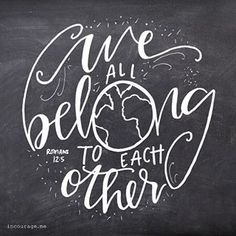In these Beatitude statements, the ‘to be’ verb is open-ended. It is not past tense. It is not even present-tense. Nor is it conditional. It creates the world by declaring it as accomplished.
In fact, as Maxie Dunnan and Kimberly Dunnan Reisman write, “Originally there was no verb in the Beatitudes … ‘are’ … did not appear in the original Greek or Hebrew text. That word was added to bring out the meaning of each sentence.” William Barclay explains, “Jesus did not speak the beatitudes in Greek; he spoke them in Aramaic … The Beatitudes are not simple statements; they are exclamations.”
To retain that meaning across different languages, the verbs used to translate this Beatitude from Aramaic into Greek, shape a statement that presumes that what it declares will become true. It emphatically pronounces it and renders it real. The scholar Boring says, “The beatitudes are written in unconditional performative language. They do not merely describe something that already is, but bring into being the reality they declare.”
Within this verb, we do not find a promise for the future. Rather this is a spiritual wealth, rooted in belonging to each other and to God’s kingdom, that is already ours. Dunnan and Dunnan Reisman add, “This means that the Beatitudes are not an explanation for what might be—could be; they are exclamations of what is. … And it is ours now, not in some future time.” It’s the first of several paradoxes.
When Christ says it, this blessedness unfolds. The Word creates. Again and again, over and over, then and now.
Perhaps the people described within each Beatitude statement don’t feel blessed or special. The circumstances described in each Beatitude aren’t ones that we, as humans, aspire to attain. We don’t want to be poor, hungry, or sorrowful.
Yet these states of being are part of the human condition. And Christ confers a blessing on these least likely of humans. Yes, we can admit, that we may continue to wonder, where is the blessing that comes with this circumstance in which I find myself? Maybe we even think: I’d rather return the blessing so that I do not need to live in these undesirable, unwanted conditions.
Our perspective about these worrisome, painful, underdog conditions — these difficult states of being now labeled as blessings — are forever changed by Christ’s attention. Martha Storz tells us, “Jesus blesses us by sharing our lot and reversing it … A philosopher calls this sort of speech performativespeech because the words themselves deliver the goods. A Christian calls this incarnation.” Back in Jesus’ time, and now in ours, perhaps the blessing begins by being seen and acknowledged as one who matters in the eyes of God. — Rev Gail
Meditations:
I was born the day I thought: What is? What was? And what if? — Suzy Kassem
Be yourself; everyone else is already taken. ― Oscar Wilde
You may not control all the events that happen to you, but you can decide not to be reduced by them. ― Maya Angelou
Make the most of yourself … for that is all there is of you. ― Ralph Waldo Emerson
Don’t you ever let a soul in the world tell you that you can’t be exactly who you are. ― Lady Gaga
Challenge or Question: What is possible for you? What limits have you put on yourself? What limits have been placed on you? When have you been seen and valued for yourself?
